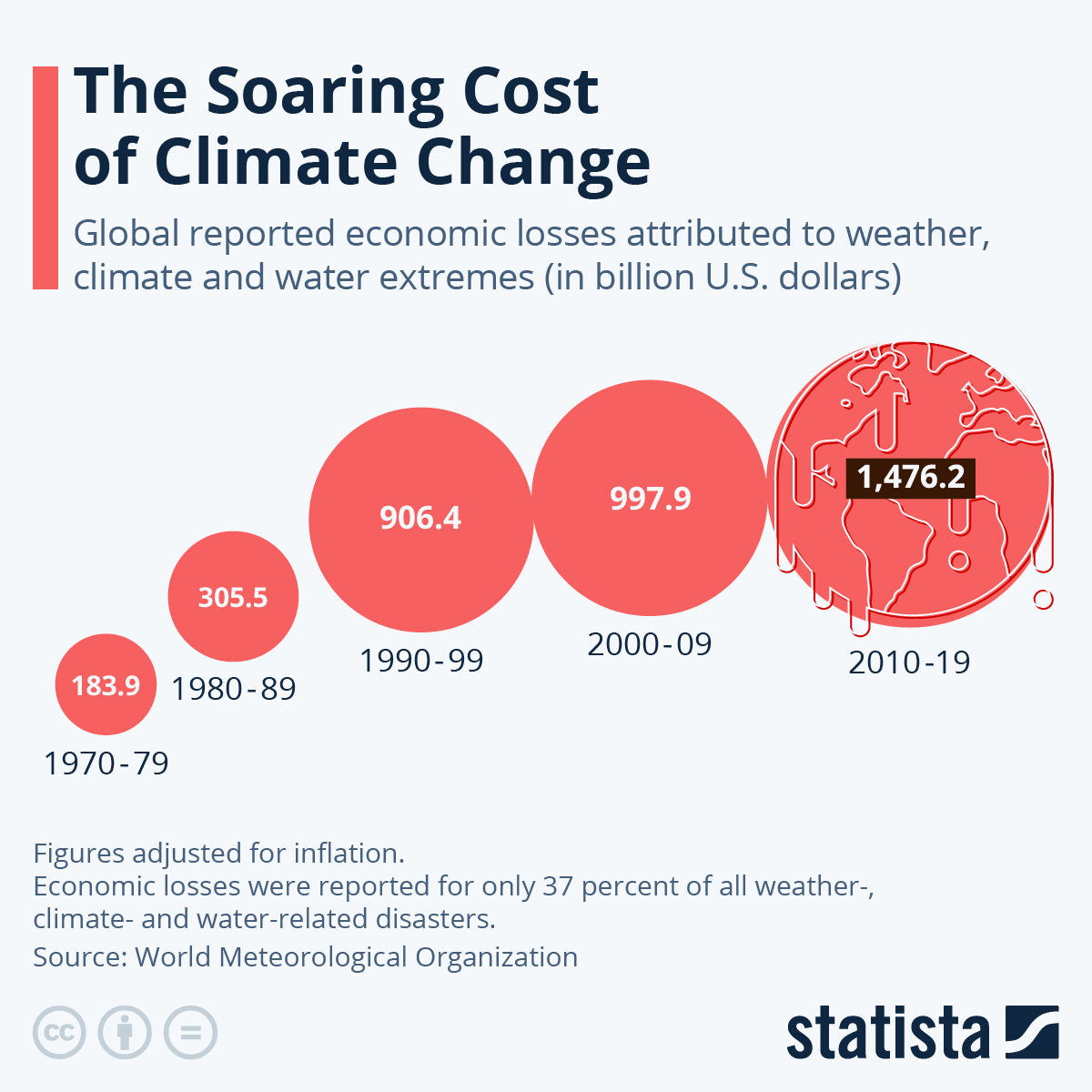Last week saw the record for the hottest day globally broken three times, leading the World Meteorological Organization's (WMO) Director of Climate Services, Prof. Chris Hewitt, to state in a press release: "We are in uncharted territory and we can expect more records to fall as El Niño develops further and these impacts will extend into 2024,” adding “This is worrying news for the planet".
Aside from the enormous ecological and health implications of climate change, a recent report by the WMO found that the negative economic impact is also significant, and growing. As seen in this infographic, inflation adjusted figures for economic losses attributed to weather, climate and water extremes were $184 billion in the 70's. In the last decade, this rose to almost $1.5 trillion. The actual figures are likely to be far higher, with an estimated 63% of losses thought to have gone unreported.
Since 1970, the cost of human life has actually decreased thanks to "improved early warnings and coordinated disaster management", as described by the WMO. Yet still: "The most vulnerable communities unfortunately bear the brunt of weather, climate and water-related hazards". The number of deaths attributed to these events between 2010 and 2019 is 184,000, with the largest share due to extreme temperatures.





















